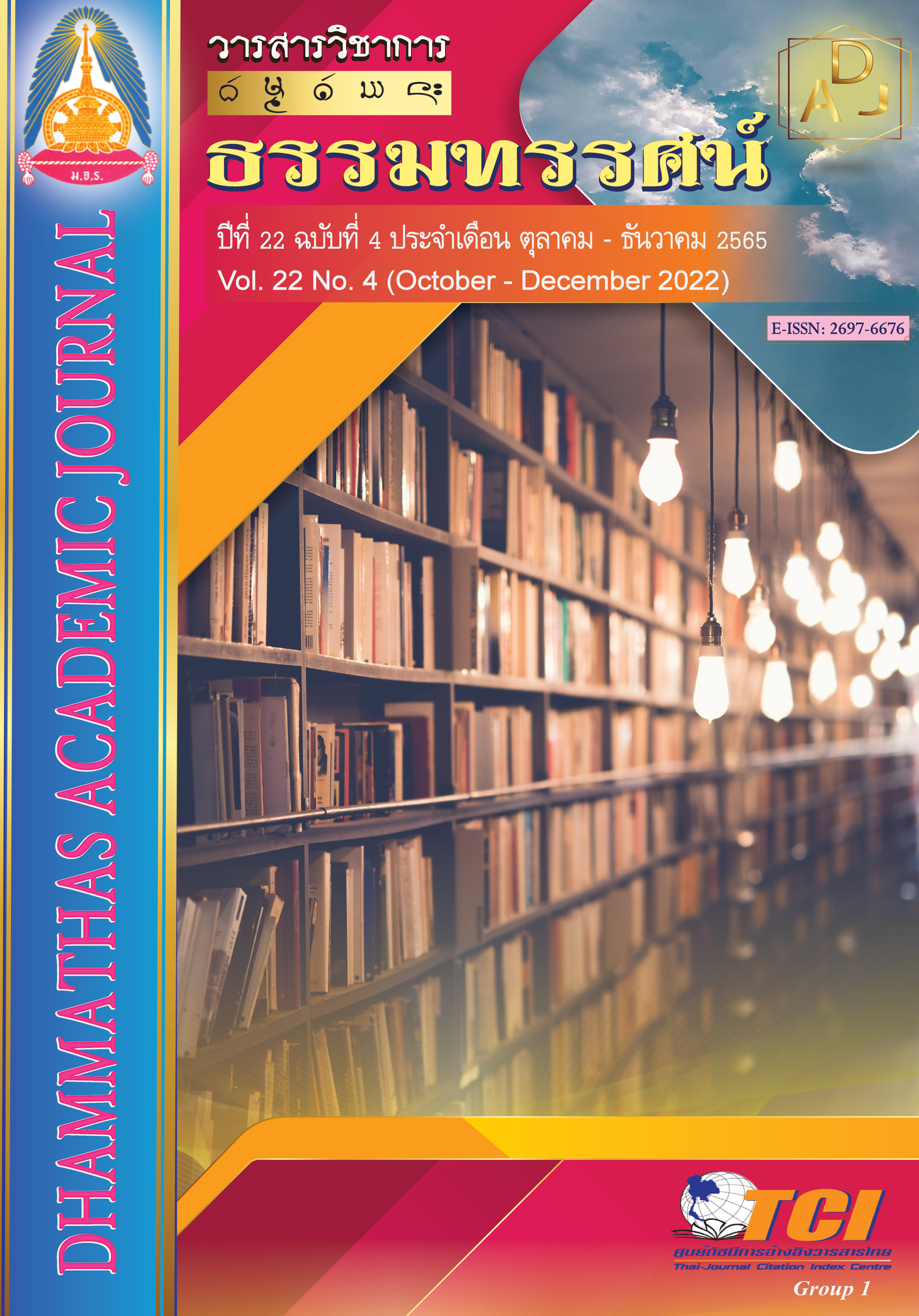Life Skill and Community-Based Education of Schools in Sai Yoi Sub-District
Main Article Content
Abstract
The objectives of this research were 1) to study the main concepts used in school education management in Sai Yoi sub-district and 2) to develop a life skills and community-based educational management model that reflected the learners' way of life in Sai Yoi sub-district, Noen Maprang district, Phitsanulok Province. This research was participatory action research (PAR). Research target groups include 440 representatives from school administrative staffs, teachers, students from 7 schools, community leaders, and other stakeholder groups. Collect data with focus group discussions, in-depth interviews, observations, learning management, multidimensional assessment. This research used focus group question guidelines, non-participant and participant observations, multidimensional learning assessment form. Content analysis was used for data analysis. Triangulation was used to verify the reliability of the study.
The research results are:
1. The main concept used in Sai Yoi school education management is the community-based education concept. The proposition in education comes from the dilemmas, problems, and community development policies of community leaders. The learning management model is community service learning in extra-curricular activities to improve the quality of life of people in the community. The success factor in educational management is a good relationship between the school and the community in a mutually collaborative approach.
2. The model of educational management based on life skills and community that is consistent with the way of life of the learners is the SAIYOI Model: 1) S = Student Centered; 2) A = Ambitious Plan; 3) I = Information-based operation; 4) Y = Young Spirit); 5) O = Organization for All; and 6) I = Innovation at Heart.
Article Details

This work is licensed under a Creative Commons Attribution-NonCommercial-NoDerivatives 4.0 International License.
เพื่อให้เป็นไปตามกฎหมายลิขสิทธิ์ ผู้นิพนธ์ทุกท่านต้องลงลายมือชื่อในแบบฟอร์มใบมอบลิขสิทธิ์บทความ ให้แก่วารสารฯ พร้อมกับบทความต้นฉบับที่ได้แก้ไขครั้งสุดท้าย นอกจากนี้ ผู้นิพนธ์ทุกท่านต้องยืนยันว่าบทความ ต้นฉบับที่ส่งมาตีพิมพ์นั้น ได้ส่งมาตีพิมพ์เฉพาะในวารสาร วิชาการธรรม ทรรศน์ เพียงแห่งเดียวเท่านั้น หากมีการใช้ ภาพหรือตารางของผู้นิพนธ์อื่นที่ปรากฏในสิ่งตีพิมพ์อื่นมาแล้ว ผู้นิพนธ์ต้องขออนุญาตเจ้าของลิขสิทธิ์ก่อน พร้อมทั้ง แสดงหนังสือที่ได้รับการยินยอมต่อบรรณาธิการ ก่อนที่บทความจะได้รับการตีพิมพ์References
เทศบาลตำบลไทรย้อย. (2565). วิสัยทัศน์/พันธกิจ. เข้าถึงได้จาก https://www.saiyoi.go.th/vision.php
สำนักงานเลขาธิการสภาการศึกษา. (2562). สภาวะการศึกษาไทย 2561/2562 การปฏิรูป การศึกษาในยุคดิจิทัล. กรุงเทพฯ: สำนักงานเลขาธิการสภาการศึกษา.
สำนักงานสภาพัฒนาการเศรษฐกิจและสังคมแห่งชาติ. (2565). (ร่าง) แผนพัฒนาเศรษฐกิจและสังคมแห่งชาติ ฉบับที่ 13 พลิกโฉมประเทศไทยสู่สังคมก้าวหน้า เศรษฐกิจสร้างมูลค่าอย่างยั่งยืน. กรุงเทพฯ: สำนักงานสภาพัฒนาการเศรษฐกิจและสังคมแห่งชาติ.
Barrett, M. S. (2012). An Introduction to Community-Based Learning. Retrieved from https://www.holycross.edu/sites/default/files/files/cbl/introduction_to_community-based_learning_17.pdf
Dede, C. (2009). Comparing Frameworks for 21st Century Skills. Boston: Harvard Graduate School of Education, 137(1), 2-8.
Howard, J. (2001). Service-Learning Course Design Workbook. Michigan: The Edward Ginsberg Center for Community Service and Learning.
Kindon, S., Pain and Kesby, M. (2007). Participatory Action Research Approaches and Methods Connecting people, participation and place. New York: Routledge.
Learning Liftoff. (2017). The Importance of Life Skills-Based Education. Retrieved from https://www.learningliftoff.com/the-importance-of-life-skills-based-education/
Macmillan Education. (2016). What are life skills?. Retrieved from http://www.macmillanenglish.com/life-skills/what-are-life-skills/
Melaville, A., Berg, A. C. and Blank, M. J. (2006). Community-Based Learning: Engaging Students for Success and Citizenship. Washington D.C.: Coalition for Community Schools.
UNICEF. (2003). Life skills: Implementation models. Retrieved from: https://www.unicef.org/lifeskills/index_10485.html

